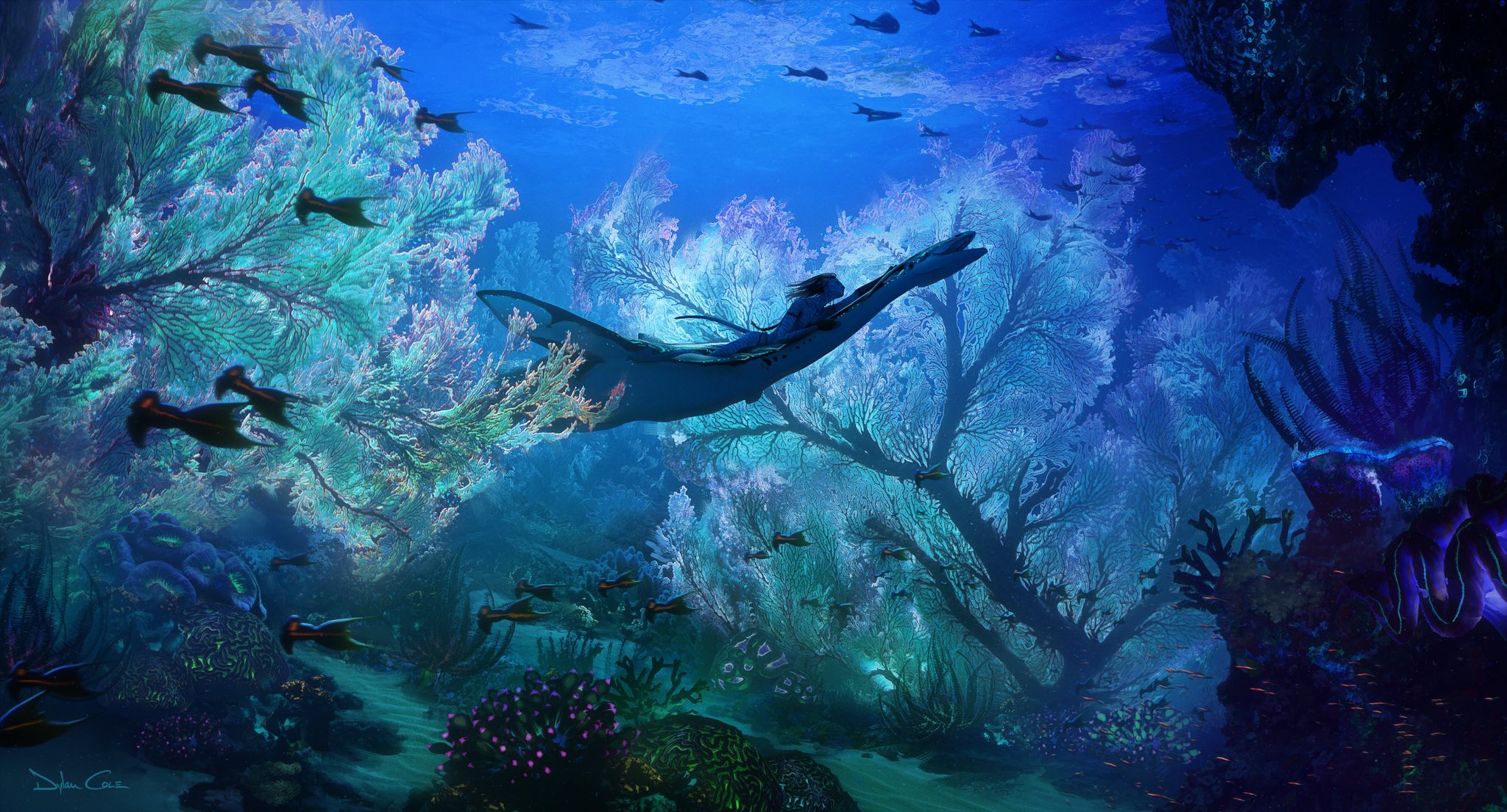There are many types of depression all with varying degrees of severity, it could be that your brain’s mood levels aren’t well balanced, or a series of negative or traumatic events have left you feeling depressed, even one event can trigger depression such as the loss of a loved one. Sometimes it can be something less concrete, like feeling purposeless or adrift in this ever-changing world we live in. Though one type of depression that you may never have heard of is post-Avatar depression or PAD.
Yes, apparently this is a very real thing that viewers feel having watched the James Cameron visual spectacular are left with by the end of the film. The vibrant world of Pandora and its inhabitants the Na’vi paints a somewhat picturesque utopia where nature and people live together in harmony, that is until human colonizers come along.
The world that Cameron built with Pandora left many feeling that their own is gray in comparison, lacking in vitality and natural wonder. Not only that, but the human greed that causes destruction for the Na’vi people and their planet only serves to remind us of what we are doing to our own. The casual decimation of our own natural environment for the sake of profit is brought to the forefront of our minds after watching the film, leaving audiences feeling despondent and impotent in the face of the current crisis.

Since then these people have flocked to fan sites where others reported feeling the same way, with many discussing just how bad their mental health had gotten since watching the film. The Guardian reported some of the chats from these sites, with one user writing
“Ever since I went to see Avatar I have been depressed. Watching the wonderful world of Pandora and all the Na’vi made me want to be one of them, I even contemplate suicide thinking that if I do it I will be rebirthed in a world similar to Pandora and that everything is the same as in Avatar.”
The thread continues with over a thousand responses from people all over the globe, with many citing similar feelings of depression towards their own lives and how we as humans treat our planet. One person wrote, “Are there other people out there who think humanity is going south?”
You don’t have to have watched Avatar to feel this way, many young people feel uncertain and despondent about their future given the drastic environmental changes that are being brought on by climate change such as droughts, wildfires, flooding, and other natural disasters that are happening with increased frequency and severity across the world. However, the film does bring it into sharper focus as it showcases a different way of living through the Na’vi along with humans being presented as carelessly destroying this serenity in the name of capitalism and greed.

One fan site, named Tree of Souls, after the trees found in the film, has many chat threads about various aspects of the film, but one, in particular, stands out as it discusses dealing with depression after having watched the film and is aptly titled, “Ways of coping with the depression of the dream of Pandora being intangible.”
These kinds of threads give fans tools to deal with their depression, encouraging them to find ways to connect with nature through going out on hikes, going to places for star gazing, getting involved with environmental groups to find ways to protect nature, and also simply talking with others about how they were feeling.
One fan told The New York Times how he felt after seeing the movie, and the steps he took to overcome this and move his life in a way that made him feel like he was actively participating in nature. When he was 17 he wrote on a fan thread,
“When I woke up this morning after watching Avatar for the first time yesterday, the world seemed … gray. It was like my whole life, everything I’ve done and worked for, lost its meaning. It just seems so … meaningless. I still don’t really see any reason to keep … doing things at all. I live in a dying world.”
But thanks to conversing with other fans he started to change his habits, reading philosophy and going out on hikes, “Avatar made me feel like I could sit out in a forest and just be.” He even met his wife on one of these forums.

Community seems like the key as another poster on the Tree of Souls site also wrote,
“Talking always helps… I don’t even want to think about where I would be right now if I hadn’t found AF back in the early days of my PAD…”
Though PAD may not be a clinical diagnosis it is a very real and observable phenomenon. It’s great to see that there are places where people feeling this way can go to chat with people who feel similarly as well as offer solutions that not only benefit their mental health but also increase a desire to engage with and protect nature.
For many, they cite the film as having been a turning point in their lives, with one person more recently posting,
“For me it was the world they live in that made me depressed because I was just “another human” on this earth and not in harmony with nature. The movie changed the direction of my life and made me more connected to the natural world around me. I never thought growing up that I would be an avid gardener and Avatar is what brought that onto me.”
It will be interesting then to see how people will react to the sequel, Avatar: The Way of Water. We hope that, rather than leading some down dark paths, we will see more people taking an interest in protecting our own oceans.
If you or someone you know may be considering suicide, contact the National Suicide Prevention Lifeline at 1-800-273-8255 (En Español: 1-888-628-9454; Deaf and Hard of Hearing: 1-800-799-4889) or the Crisis Text Line by texting HOME to 741741. A list of international crisis resources can be found here.
